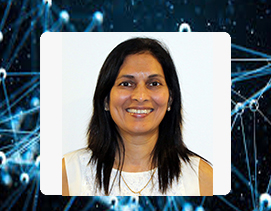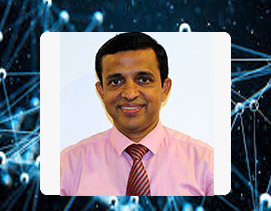Development of advanced materials based filters for water purification
NRC Grant No: NRC TO 16-18
Research Institute: University of Colombo
Amount Funded: Rs. 48,523,985.00
Date of Awarded: 16th March 2016
End Date: 17th March 2022


Summary
The strength and wealth of a country is the health of the people living there. Health mainly depends on the quality of the drinking water. Although Sri Lanka is blessed with water resources, they get constantly contaminated with pollutants such as pesticides, heavy metals and human wastes. Additionally, certain areas are recognised as having high levels of chemical contaminants such as fluoride, nitrates, manganese, arsenic and calcium in ground water due to their geogenic origin. In the Sri Lankan context, 90 percent of the urban population has access to safe pipe borne water and 60 percent of the rural population has the access to protected well water. The rest depend on groundwater from dug wells and tube wells, with no monitoring and protection. As a result, some elements that are geogenic in origin have had a marked effect on their health. Among the chemical, that are geogenic origin, fluoride is one of the suspected offenders for the Chronic Kidney Disease of unknown etiology (CKDu). In addition, a large amount of heavy metals, E-coli and other bacterial species in certain water bodies has been recorded in various parts of the island. It is estimated that, of twenty five districts, fifteen districts are affected due to various contaminants in drinking water. This is an alarming situation as these chemical and biological contaminants are known to cause adverse health effects in human. Some of these are chronic toxins and tend to bio accumulate showing noticeable adverse effects after long years of exposure. Increasing kidney diseases and cancer amongst the general population of Sri Lanka can be attributed to the chronic exposure to such toxic chemicals. It has been estimated that over the past two decades, there have been 22,000 deaths from CKDu in the North Central Province and at least 5 or 6 out of 100 people are currently affected. Approximately 5% of the annual health budget is spent on the management of CKDu patients. In addition, biological contaminants found in many parts of the country cause serious water borne diseases such as viral hepatitis, bacillary dysentery, enteric fever, diarrhoea and food poisoning. It is therefore paramount to concentrate on developing water purification systems in rural areas, where there are no proper water purification arrangements available. The aim of this project is to provide low cost and effective point-of-use water filters, which require no electricity for the water purification process. This will be achieved by introducing nanotechnology based, engineered advanced composite materials using locally available support matrices. The designed multiple systems will be capable of removing turbidity, organic pollutants, heavy metals and microorganisms. These sustainable water purification systems will be produced in collaboration with a local manufacturer, Access Water Systems, who has a good track record in producing water purification systems in this country. Additionally on site analysis of heavy metals and fluoride levels using chemical sensors and genetically engineered (transgenic) fish will also be developed.
Objectives
- To develop biocompatible advanced materials (Nanomaterials and nanocomposites) using local raw materials to remove heavy metal ions such as arsenic, lead, mercury and cadmium.
- To develop biocompatible advanced materials to remove organic pollutants (dyes, pesticides, etc.), fluoride and pathogens
- To develop a filter which is easy to use
- To have an acceptable flow rate in the filter
- To have a low cost filter which is affordable to rural masses
- To develop a technology to identify fluoride content in water bodies using a simple test which can be performed on site.
- To develop genetically engineered luciferase or GFP-based whole cell bacterial biosensor to detect heavy metal pollution in environment.
- To develop luciferase or GFP-based transgenic Zebrafish biosensor to detect heavy metals pollution in environment.
Major Equipment Facilitated by Grant
- Powder X-Ray Diffractometer (PXRD)
- Atomic Absorption Spectrophotometer (AAS)
Research Team
Designation
Principal Investigator (PI)
Deputy Principal Investigator (DPI)
Co- investigator
Co- investigator
Co- investigator
Co- investigator
Co- investigator
Name
Prof. Rohini M. de Silva
Prof. K.M. Nalin de Silva
Prof. Dammika Dissanayake
Prof. Ranil Dassanayake
Prof. Nilmini Gunawardena
Dr. N.V. Chandrasekharan
Dr. Gareth Williams
Institute
University of Colombo
University of Colombo
University of Colombo
University of Colombo
University of Kelaniya
University of Colombo
University College London
University of Peradeniya
